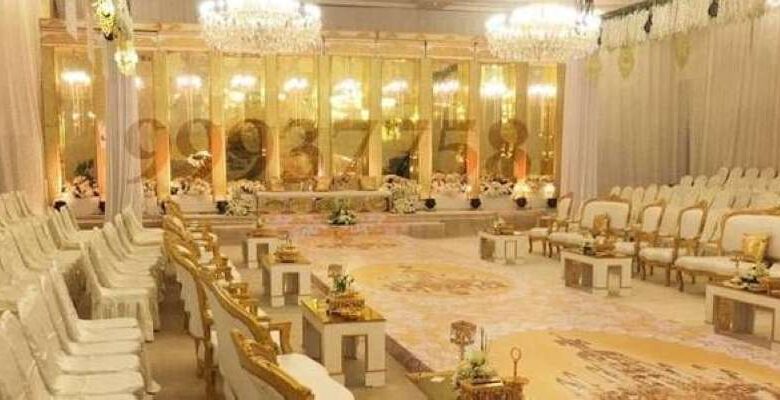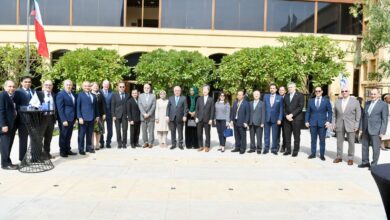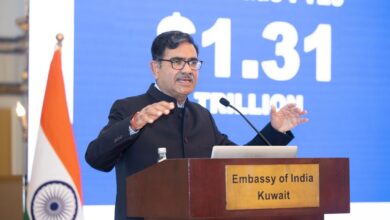Ministry sets new guidelines for establishment of wedding halls
Kuwaiti donors or cooperative societies set up wedding halls by submitting a request on a special form, signing a pledge to comply with building regulations, and attaching a KD 3,000 guarantee check.

-
The Ministry of Social Welfare is responsible for determining the locations for the establishment of wedding halls in coordination with the Municipal Council, the Kuwait Municipality, and the Public Institution for Housing Welfare.
-
The donor is obligated to provide the ministry with copies of the licenses, approved plans, and contracts for building, equipping, and furnishing the hall, along with a bank guarantee amounting to 30 percent of the total value for the implementation of building, equipping, and furnishing the hall.
-
The hall will bear the donor’s name indefinitely, even after their death and completion of the work through insurance. If the donor fails to act promptly, the ministry may rename the hall when assigning it to another donor.
The Ministry of Social Affairs has issued ministerial decision No. 93 of 2024, establishing new conditions and controls for setting up wedding halls. According to the Al Rai newspaper, this decision outlines the following regulations:
Article 1:
The provisions in this decision regulate the conditions and controls for establishing wedding halls by Kuwaiti donors or cooperative societies. It emphasizes that donations in this sector are voluntary charitable acts aimed at fostering social solidarity within the community.
Article 2:
The ministry is responsible for determining the locations for the establishment of wedding halls in coordination with the Municipal Council, the Kuwait Municipality, and the Public Institution for Housing Welfare. These sites are allocated in the name of the Ministry of Social Affairs.
An exception to this is new housing cities, where the locations of wedding halls have been identified by the Public Institution for Housing Welfare. In such cases, a contract is concluded between the donor and the Ministry of Finance – State Property Management – after approval by the Ministry of Social Affairs.
Article 3:
The donor submits a request to set up a wedding hall using the special form prepared for this purpose and signs a pledge to abide by the terms and regulations for building halls. A guarantee check worth KD 3,000 is also attached to the request.
Article 4:
If the ministry approves the request, the site will be handed over to the donor, and work will begin on the state property contract and the design of the hall.
The ministry will also coordinate with the Kuwait Municipality, the Kuwait Fire Force, and the Ministry of Electricity, Water and Renewable Energy to issue the necessary construction licenses. The donor is required to submit a timetable for implementation after the building permits are issued.
Article 5:
The donor is obligated to provide the ministry with copies of the licenses, approved plans, and contracts for building, equipping, and furnishing the hall, along with a bank guarantee amounting to 30 percent of the total value for the implementation of building, equipping, and furnishing the hall.
The guarantee will be released as soon as these works are completed and the hall is operational. The ministry has the right to renew the bank guarantee automatically without referring to the donor until the final implementation of the hall is completed.
Article 6:
In the event of the death of the donor before the completion of the construction, equipping, and operation of the hall, the donor’s obligations shall be transferred to whomever the heirs designate in an official letter with a special power of attorney to complete the construction work of the hall.
If the heirs do not wish to complete the donation work, the hall shall be withdrawn, the state property contract shall be canceled, and construction shall be completed by the ministry using the bank guarantee.
The name of the deceased donor will be placed on the hall. If the bank guarantee funds are insufficient to complete the work, the ministry has the right to assign the remaining work to another donor and determine the name of the hall.
Article 7:
The donor bears legal responsibility before the ministry for the process of constructing, equipping, and delivering the hall to the ministry.
The donor is also solely responsible for the obligations resulting from the construction and equipping process towards third parties, whoever they may be. None of the donor’s creditors have the right to recourse against the ministry in this regard.
Article 8:
In the event that the donor fails to start the construction process or is lax in implementation for any reason, the ministry has the right to withdraw the project from the donor after notifying them in writing at the address stated in the donation request. The donor will be prohibited from putting their name on the hall, and the ministry has the right to cash the letter of guarantee to complete the construction.
Article 9:
The donor is obligated to observe the controls and conditions of the Public Authority for the Affairs of Persons with Disabilities when establishing and implementing the hall.
Article 10:
The hall will be named after the donor, and it will continue to bear their name in the event of their death and the completion of the work through insurance.
The ministry will consider naming the hall if it is withdrawn from the donor due to inaction or delay in carrying out the work and assigned to another donor.
Article 11:
Ministerial Resolution No. 1/77 of 1974 outlines the conditions and regulations for establishing new wedding halls, superseding all previous decisions on this matter and any conflicting provisions.
Article 12:
This decision shall take effect from the date of its issuance.












